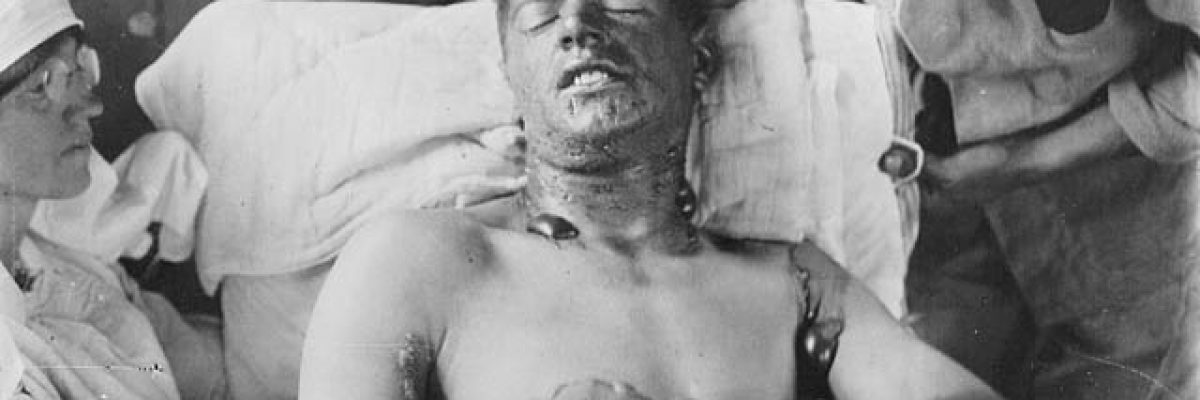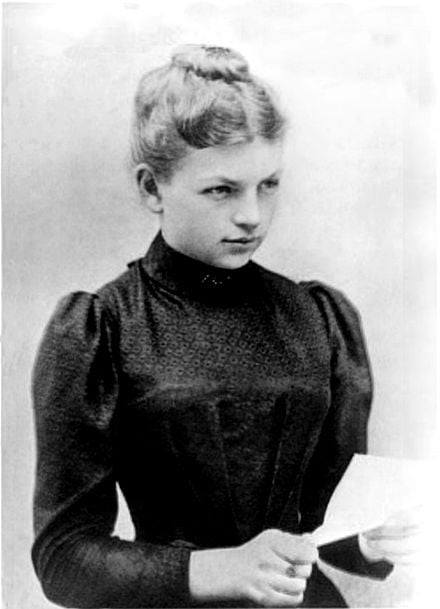151 years ago, this week, the chemist Clara Haimwehr-Haber was born near the city of Breslau. Her family was Jewish, wealthy and educated, and her father was a chemist. She, as well as her brother and sisters, received an excellent education, but while the brother went on to academic studies, the daughters were supposed to marry and devote themselves to their family. Curious and opinionated, Clara did not accept this discrimination and insisted on continuing her studies. She moved with her father to the city of Breslau and began studying at a teachers’ seminary. One day she met a promising young Jewish scientist named Fritz Haber. A romantic relationship began to develop between the two, which was nipped in the bud, as Clara was determined to continue her academic studies. The problem was that women could not yet be accepted for full-time studies, and it was only after an exhausting struggle that she was admitted to the University of Breslau. A few years later she received a doctorate with honors in physical chemistry. Thus, making her the first woman at this university to win a doctorate and the first woman in all of Germany to receive a doctorate in chemistry.
After graduating, she met Fritz Haber again, who had meanwhile progressed to the position of researcher and lecturer at Karlsruhe University, and converted to Christianity out of a desire for faster advancement. This time Clara, 31, agreed to marry him and under his influence converted as well. A year later, their only son was born – Herman. The problem was that as mother and wife Clara could not continue the research which was so dear to her heart and develop an academic career. She slowly sank into depression, while her husband developed a brilliant career, with his wife supporting him and even helping him with his research. In 1906, Fritz, along with his colleague Carl Bush, began a revolutionary study, and in 1909 their efforts bore fruit and they were able to produce ammonia by fixating nitrogen from the air. Ammonia is especially important in the creation of fertilizers for agriculture and it is difficult to overstate the importance of this discovery thanks to which enough food could be provided to all the inhabitants of the earth. Thanks to ammonia, or perhaps because of it, the number of humans on Earth had risen, from approximately two billion on the eve of World War I to almost eight billion today. Thus, Fritz Haber became one of the most well-known and revered scientists in the world. Clara was proud of him. For Fritz, a Jew by birth, it was also a means of proving his loyalty and contribution to Germany, as at that time there was a fear that during a war Germany would be placed under a naval siege that would prevent food imports and cause its defeat. In addition, ammonia was also used to make explosives. It is possible that the discovery gave confidence to the German statesmen, led by the emperor, to dare and go to World War I.
As soon as the war broke out, Fritz Haber showed up at the war office in a funny uniform that he had sewn for himself and offered his services for the war effort. He was appointed head of the military section for chemistry and began developing chemical weapons, mainly chlorine gas, and later on mustard gas, although Germany was a signed on the Hague Convention banning the use of chemical weapons. When Clara entered the labs one day, she was shocked to see that her husband was experimenting with chemical weapons on caged animals. Her anxiety and reluctance increased when one of her friends died in agony in an explosion during one of the experiments. Clara, who was not only a feminist but also a pacifist, begged her husband to stop his actions, but he dismissed her claims, arguing that not only were his actions not cruel but even humane, that chemical weapons would allow Germany a quicker victory. This will save human lives on both sides of the barricade, what is more, being gassed to death is faster and therefore saves unnecessary suffering.
In April 1915, the chemical weapons were ready, and Haber eagerly set out for the Western Front to oversee the use of the new weapon. Even when it turned out that the weapon had caused severe torture to thousands of French soldiers, he returned home triumphant and held a victory party. That evening a serious quarrel broke out between him and Clara. Knowing that she was married to a man who causes such cruel death to tens of thousands of people was unbearable for her, and in the dead of night she stealthily entered his room, took his gun and shot herself. The father and son woke up in panic but Clara was already dying and succumbed in the arms of their 13-year-old son. The next day, the father abandoned his son and drove to the Eastern Front to oversee gas warfare against the Russian army. It is therefore no wonder that the son committed suicide thirty years later.
In the end, Haber’s two inventions, fertilization ammonia and chemical weapons, did allow Germany to hold on longer during the war, but did not bring about the long-awaited victory. In fact, had it not been for his discoveries, Germany would have been defeated within a year, and the number of casualties on all sides would have been lower. Fritz was depressed by the defeat and by the fact that his discoveries did not help Germany – his beloved homeland. The victors declared him a war criminal and he was forced to flee to Switzerland. Happily, a few months later revoking the extradition request, and despite protests, he even won the 1919 Nobel Prize in Chemistry for his invention of ammonia production.
In the Democratic Weimar Republic, Haber continued his scientific activities. He developed pesticides against agriculture and cyclone B based on cyanide. It turned out that his third invention was also used a few years later in Auschwitz for unbearably cruel acts, although Haber did not live to see this. When the Nazis came to power in 1933, he was required to fire all his Jewish workers (he, himself, had not yet been fired), but refused. He resigned and left Germany. He was unable to extract much of his property from Germany and therefore needed work. Many scientific institutions around the world refused to employ him due to his past as a war criminal. Only Professor Haim Weizmann, who had just established a small scientific institute in the city of Rehovot in Eretz Israel, offered him a job. Although it was beneath his dignity, Haber agreed and even wrote Weizmann something like this: “I was a great man but you will remembered more than me because you are building a home for our people.” However, Haber never arrived in Israel. In 1934, on his way from Britain to Israel, via Basel, he died there unexpectedly.
Many research institutes around the world are named after Fritz Haber, and Clara is named after the Nuclear Weapons Prevention Award. In the series “Genius” – the first season about Albert Einstein deals with this affair, and a German film about Clara was produced in 2014.





